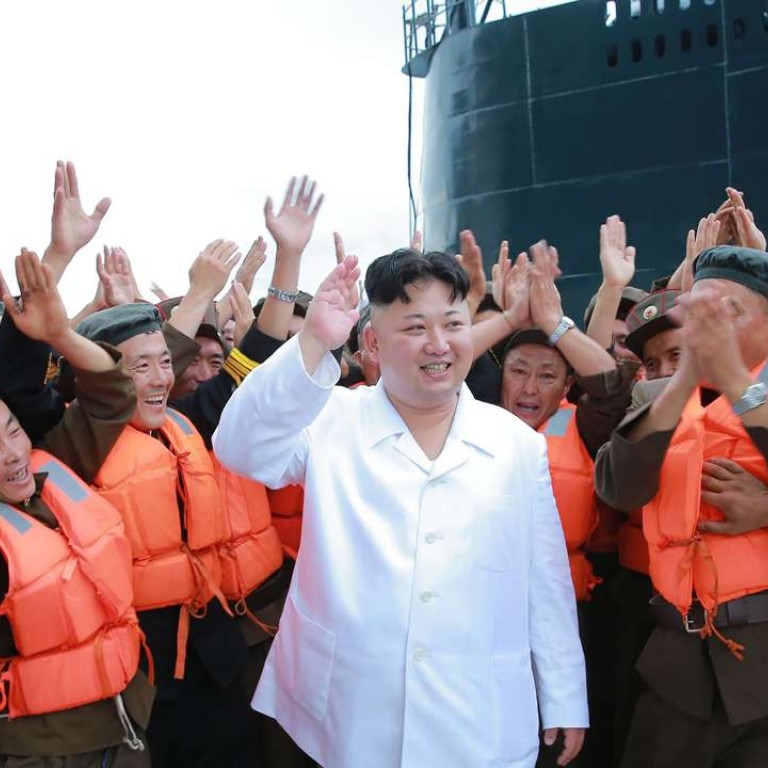
A US-Seoul-Tokyo alliance is more crucial than ever as Kim chases his nuclear dream
Donald Kirk says a tight three-way defence grouping would not only help ease the legacy of bitterness in East Asia, but also give powerful leverage to efforts to contain North Korea
The dream of American diplomacy is for a trilateral alliance joining the US in common cause with its two northeast Asian allies, South Korea and Japan. The great obstacle to this alliance has always been the bitterness between Korea and Japan. US diplomats have often called for the two nations to get over the legacy of bitterness and look ahead by cooperating in defence against North Korea.
Such pleas have often been met with rebukes, with claims that Americans fail to understand the depths and complexities of antipathy on both sides of the East Sea, which the Japanese know only as the Sea of Japan.
US to deploy 16 F-35 stealth fighters at Japan base next year
The result is that the US, maintaining separate alliances, generally cannot talk to leaders from both nations at the same time. Over the years, US presidents, and secretaries of state and defence, have often had to include visits to Seoul and Tokyo on the same trip, building rapport while hoping to foster trilateral cooperation.

Unquestionably, a Northeast Asia trilateral alliance would be in the best interests of all concerned. Japan was the rear base area from which supplies moved for the US, South Korean and other allied forces in the Korean war. Japan provides bases for 50,000 US troops, including the largest US air base in the region, nearly twice the 28,500 US troops in South Korea. If there were to be a second Korean war, the US and South Korea would be more reliant than ever on bases in Japan from which to move vital supplies in a hurry.
Might Japanese troops, however, be called on to assist the South Koreans and Americans in a crisis? If Japan is not allied with South Korea, the answer is probably no. Under the current arrangement, US troops and supplies could move from Japan to Korea, but Japanese troops would not be involved. Nor would Japan engage in high-level planning with South Korea. The US and Japan would work together, as would the US and South Korea, but not South Korea and Japan.
We cannot be intimidated by North Korean rhetoric
We are often reminded, however, of the harsh realities that should draw Korea and Japan towards each other. Japanese Prime Minister Shinzo Abe recently visited Cuba, where he sought the support of President Raul Castro and his ailing older brother, Fidel, leader of the Cuban Communist revolution of the 1950s. Besides talking over terms for reducing Cuba’s US$1.5 billion debt to Japan, Abe asked if Cuba, as one of North Korea’s closest friends, could intercede with leader Kim Jong-un to stop testing nuclear warheads and missiles and consider giving up the North’s nuclear programme.

Japan PM discusses North Korea’s nuclear programme during meeting with Cuba’s Fidel Castro
Nobody expects Kim to respond positively to a message from Castro on the nuclear issue, but at least he would listen. Much as the “supreme leader” might prefer to ignore advice from his few friends and allies, he would still feel the pressure. Cuba and North Korea are both Communist nations, though of very different sorts. The US, Japan and others have finally formed diplomatic relations with Havana while visitors come and go along with commercial cargo and financial investment. It might serve as an example for North Korea, where all visitors are tightly monitored, trade is difficult and investment almost impossible.
Imagine how much more effectively Castro could intercede if he were doing so on behalf of both Japan and South Korea as allies. And how much more likely would be a positive response from Pyongyang if confronted by the reality of a tight three-way alliance binding the US, Japan and South Korea. The North’s strategists would like nothing better than to drive a wedge between Seoul and Tokyo. As allies, they would demonstrate the futility of that ambition.
North Korea’s Kim celebrates ‘success’ of submarine missile launch, claims US mainland now within striking distance
A counterargument might be that Kim would be dangerously upset by such an alliance. Isolated from much of the world, he might respond by finally making good on his threat to fire mid-range missiles on targets in Japan and South Korea, or even hit the US with an intercontinental ballistic missile. The worst nightmare is that his scientists and engineers might be able to attach a nuclear warhead to the tip of a missile.
That kind of threat, however, makes a trilateral US-Korea-Japan alliance all the more necessary. We cannot be intimidated by North Korean rhetoric. The tough talk from Pyongyang adds urgency to the need for all three to work together as allies in self-defence.
Donald Kirk is the author of three books and numerous articles on Korea

